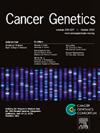29.肿瘤分子病理学检测的报销:2024 年的更新
IF 1.4
4区 医学
Q4 GENETICS & HEREDITY
引用次数: 0
摘要
染色体基因组阵列检测(CGAT)、靶向突变 NGS 和靶向 RNA 测序(TRS)已被纳入本机构的血液病路径检测计划。此前,我们分享了 CGAT 和突变 NGS 在 17 财年的报销情况。在此,我们将介绍 18 财年至 23 财年的最新情况,包括 CGAT(HCPCS 81406 和 81277)、突变 NGS(81450 和 81455)和 TRS(81455)。与 17 财年相比,18 财年至 23 财年的 CGAT 报销病例百分比有所提高。六年平均报销病例百分比显示,CGAT 为 68%(年度范围:58% 至 80%),81450 项下的突变 NGS 为 74%(69% 至 92%),81455 项下的突变 NGS 和 TRS 为 76%(50% 至 81%)。不同支付方的报销病例百分比各不相同:CGAT/NGS的商业支付者比例为82%/71%,医疗补助支付者比例为65%/70%,医疗保险支付者比例为53%/83%。不同年份的支付方组合也各不相同,商业支付方所占比例的中位数为 52%(45% 至 57%),医疗保险为 32%(25% 至 45%),医疗补助为 11%(7% 至 15%)。在开具账单的 33 例 TRS 研究中,20 例获得了报销(61%),包括 11 例中的 9 例(82%)由商业机构报销,14 例中的 7 例(50%)由医疗保险机构报销,5 例中的 4 例(80%)由医疗补助机构报销。总之,我们对获得付款的报销比例进行的评估表明,随着时间的推移,分子检测的报销情况有所改善,其趋势是商业支付机构的成功率高于医疗保险和医疗补助机构,突变 NGS 的报销比例也高于 CGAT。本文章由计算机程序翻译,如有差异,请以英文原文为准。
29. Reimbursement for molecular pathology testing for neoplasia: The 2024 update
Chromosome genomic array testing (CGAT), targeted mutation NGS, and targeted RNA sequencing (TRS) are incorporated in the pathway testing scheme for hematologic disorders at our institution. Previously, we shared the reimbursement landscape of CGAT and mutation NGS for FY-17. Here we present an update for FY-18 to FY-23, encompassing CGAT (HCPCS 81406 and 81277), mutation NGS (81450 and 81455), and TRS (81455). Compared with FY-17, FY-18 to FY-23 showed improved percent of cases reimbursed for CGAT. Six-year average percentage of cases reimbursed showed 68% (yearly range: 58% to 80%) for CGAT, 74% (69% to 92%) for mutation NGS under 81450, and 76% (50% to 81%) for mutation NGS and TRS under 81455. The percentage of cases reimbursed varied between payers: CGAT/NGS had 82%/71% by commercial payers, 65%/70% by Medicaid, and 53%/83% by Medicare. The payer mix varied between years with the median payer percentage of commercial payers at 52% (45 to 57%), Medicare at 32% (25 to 45%), and Medicaid at 11% (7 to 15%). Out of 33 TRS studies billed, 20 cases were reimbursed (61%), including 9 out of 11 (82%) by commercial, 7 out of 14 (50%) by Medicare, and 4 out of 5 by Medicaid (80%). In conclusion, our assessment of percentage of claims receiving payment suggests improved reimbursement landscape for molecular assays over time with a trend showing more success with commercial payers than Medicare and Medicaid as well as higher percentage of cases being reimbursed for mutation NGS than for CGAT.
求助全文
通过发布文献求助,成功后即可免费获取论文全文。
去求助
来源期刊

Cancer Genetics
ONCOLOGY-GENETICS & HEREDITY
CiteScore
3.20
自引率
5.30%
发文量
167
审稿时长
27 days
期刊介绍:
The aim of Cancer Genetics is to publish high quality scientific papers on the cellular, genetic and molecular aspects of cancer, including cancer predisposition and clinical diagnostic applications. Specific areas of interest include descriptions of new chromosomal, molecular or epigenetic alterations in benign and malignant diseases; novel laboratory approaches for identification and characterization of chromosomal rearrangements or genomic alterations in cancer cells; correlation of genetic changes with pathology and clinical presentation; and the molecular genetics of cancer predisposition. To reach a basic science and clinical multidisciplinary audience, we welcome original full-length articles, reviews, meeting summaries, brief reports, and letters to the editor.
 求助内容:
求助内容: 应助结果提醒方式:
应助结果提醒方式:


